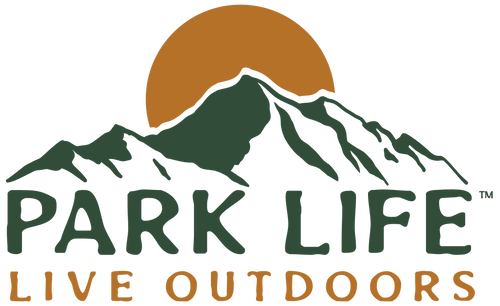Tips that I wish I knew when I started living in an RV full time...
Author: Lily Lewis @TheGoodFlaw
Learn from my mistakes and come prepared, whether you are a full-timer or planning fun road trips with the family. These are the top RV tips I know now that I wish I knew when I started.

Before You Hit the Road:
The first thing recommended to me (but it took me forever to get) was the addition of a rear-mounted backup camera for our RV. Why did it take so long? It beats me. It makes life so much easier! Once we installed it, it quickly became evident how much it improved our lives. There are so many benefits to this it is hard to think of the best one. Parking, driving, everything, you need a backup camera. It will give you so much peace of mind
Another crucial tip is always to plan your route in advance! Nothing can be more nerve-wracking for beginner RV-ers than navigating a bustling city with narrow turns or encountering a low-hanging bridge. I recommend investing in a truck GPS so you don't have to worry about these little details. Escaping a tight spot or situation is often more complicated than getting into one, and sometimes, backing up and turning around is not an option.

Tips for the Rig:
Every type of camper, whether a truck, RV, or any other kind of rig, comes with a weight limit, regardless of size. Do not wait to go to a weigh station! Understanding your weight distribution is crucial whether you're driving a truck with a trailer, a truck camper, or a motorhome. This simple step will help extend the life of your equipment and truck by not being overweight in certain areas. I make it a point to stop at a Loves Truck Stop every couple of months to check my weight and make necessary adjustments.
To avoid surpassing your weight capacity, only travel with full tanks if it's absolutely necessary. Avoid hitting the road with full water or black/gray tanks whenever possible. Regardless of your rig's tank size, liquids add considerable weight. I put just enough water in one fresh tank for emergencies, such as if I have to use the bathroom and cannot find one, or to restock the water I use to hydrate my dogs on the road if needed.
Going along with the tank idea, always dump your gray and black tank before traveling. It will be heavy, add to your weight capacity, and leave a terrible odor if left full! While dumping your tanks before leaving, make sure to spay your black tank to avoid the stench when you open the doors back up to your RV. Before travel days, I find sanitizer packets the best solution for maintaining freshness, and I always keep them on hand.
Finally, regarding your rig, this may be common sense for some, but it's worth emphasizing for those who may overlook it: stay on top of maintenance! You never want to take risks regarding your truck and trailer, especially if you live in your RV full time. My regular checklist for the truck and trailer includes:
- Checking tire pressure.
- Inspecting wheel bearings.
- Ensuring lights work properly.
- Verifying the brakes are in good condition.
Besides navigating low bridges and tight city turns, the last thing you want on the road is finding yourself stranded on the side of the highway (although sometimes still inevitable.)
Pro tip: Once your truck reaches 100 miles in fuel left, start planning a stop! Depending on where you are and the time of day/night you travel, there can be long periods between gas or diesel stations. Always stay above 50 when hauling, which is an excellent rule of thumb!

Have Peace of Mind Above All Else:
As mentioned earlier, I'm all about minimizing risks regarding my rig. Keeping that in mind, I highly recommend AAA+ with RV for roadside assistance. They offer many life and stress-saving things that help with peace of mind. Again, you never want to be stranded, and you would rather be safe than sorry when it comes to your home/RV. While I have yet to need their services, it's reassuring to know that I'm not alone on the road, especially when I'm towing, and help is just a call away. (Of course, you can get more roadside assistance add-ons, but this is the one I have used and rely on.)
Additionally, try to take your time. Life is a journey; the best thing you can do for yourself is be here for it and enjoy it. When I started full-time RV life, I wanted to reach my destination as quickly as possible. This sometimes led to an exhausting 14-hour stretch of non stop driving. From my experience, it gets old fast. The best thing to do is find a halfway point or limit yourself each day. My limit is 6 hours now, and I look forward to more travel days because of it. Plus, I get to see so many more great places!

Final Remarks:
When it comes to RV-ing, whether it is full-time or you have a summer road trip planned, come prepared. Make a checklist to check your air pressure and plan your route so you don't have to make that right turn you don't fit into. RV traveling can be fun and relaxing but requires tedious work, planning, and care. One of the best things you can do as a beginner is plan accordingly so you can have the most fun possible as you explore! Happy and safe travels!
You can find more by Lily Lewis by visiting her website and socials at:
Instagram: @TheGoodFlaw

